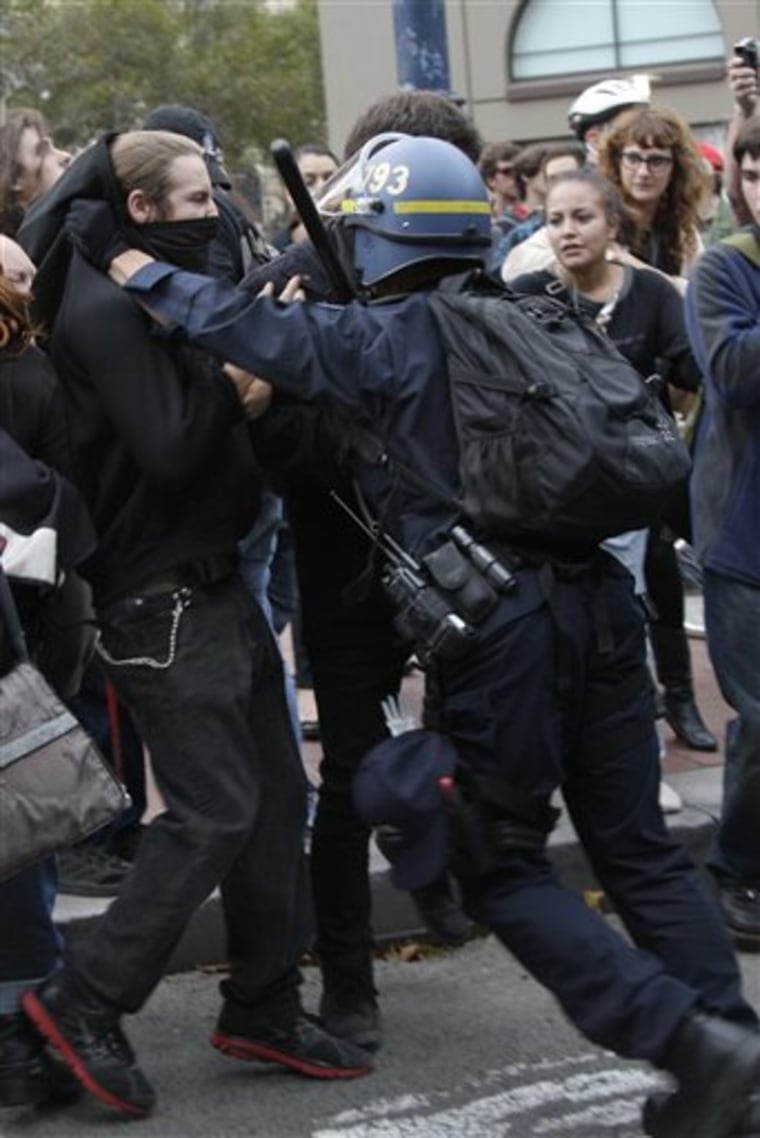Transit agency directors appeared ready Wednesday to allow police to cut wireless phone access on train platforms, but only in extreme public safety circumstances.
Eight of the nine Bay Area Rapid Transit directors met in a special meeting Wednesday in Oakland after the agency started a global debate over free speech when it shut off its wireless access in downtown San Francisco stations to disrupt a planned protest on Aug. 11.
The board didn't take a formal vote at the meeting, but members expect to adopt a formal policy within a month.
The board was divided over whether the tactic was appropriate to disrupt organizers' plans to distribute instruction through social networks and social media on how to disrupt the Aug. 11 commute. After officials cut wireless power, the planned protest over transit police fatally shooting a knife-wielding transient failed to develop.
"I thought it was a good idea at the time," said director Thomas Blalock. He said letters he received from the politically conservative district he serves south of Oakland were overwhelmingly in favor of the shut off.
Director Lynette Sweet, who represents liberal parts of Oakland, said BART was wrong to turn off wireless access, a move she said prompted two rowdy demonstrations that disrupted the evening commute the last two Monday nights.
"Instead of fixing a situation, we escalated it," Sweet said. Still, Sweet agrees with the other directors that rare situations — defusing a bomb controlled by a cellphone signal, for instance — warranted the action.
Board president Bob Franklin said the agency will adopt a formal wireless policy within a month, after holding another hearing and consulting with outsiders, including the American Civil Liberties Union.
BART is the first reported U.S. governmental agency to turn off wireless access to quell social unrest. British authorities considered the tactic during the recent London riots and Hosni Mubarak tried to block Internet access in Egypt in an unsuccessful bid to blunt demonstrators calling for his resignation.
The two demonstrations were organized by the hacker group Anonymous, which also claimed credit for hacking BART's marketing Web site and releasing the personal information of 2,000 passengers who gave their data to Mybart.org. Anonymous disavowed responsibility for the hacking of the BART police union's Web site last week and the posting of officers' home addresses.
The group said Wednesday it would continue to call for demonstrations unless BART complied with several demands, including the disbanding of the BART police and the firing of chief spokesman Linton Johnson, who first came up with the idea to turn off wireless access.
The board was unanimous in its refusal to consider disbanding the BART police. Franklin, the board president, said the agency supported Johnson and had no plans to dismiss him.
Johnson was on vacation and unavailable for comment.
Johnson said the idea for shut down came to him in the wee hours of Aug. 11 as he lay awake thinking of how to deal with the planned demonstration over the police shooting. Johnson said he sent an email to BART police, who liked the idea and interim general manager Sherwood Wakeman approved it.
Wakeman told directors Wednesday he believes the action was legal because it was used briefly and for the narrow purpose of ensuring public safety on the subways dangerously crowded platforms..
